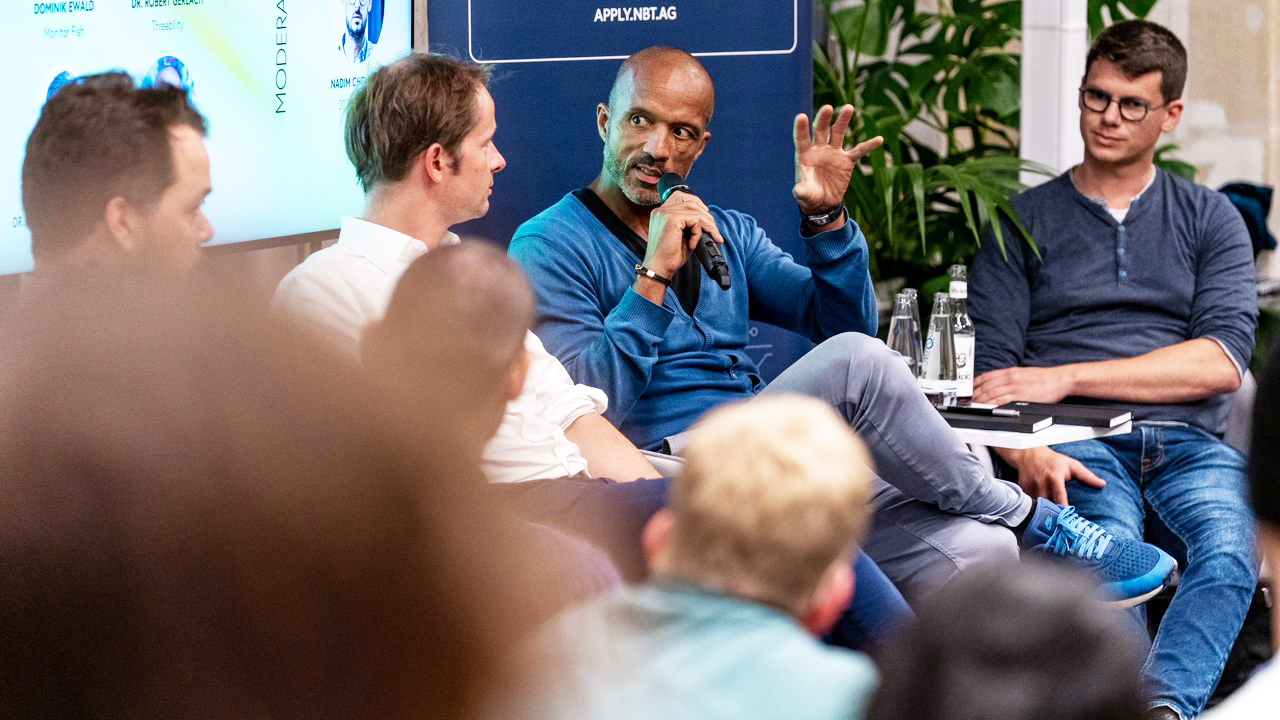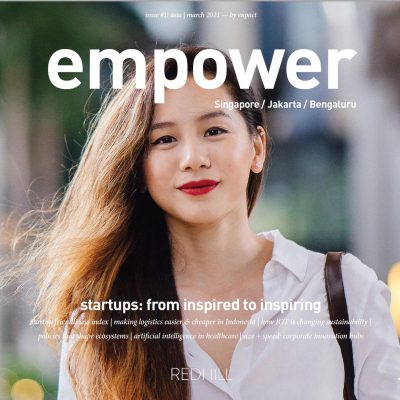
Enabling new partnerships
Enabling New Partnerships: BETWEEN THE PRIVATE SECTOR AND STARTUPS
Startups and corporates could not be more different – which is why they need to align forces and become allies! enpact tries to foster and facilitate this through the creation of corporate challenges. This means that a corporate provides a specific topic it needs to work on – like a challenge for innovation, organisational design, new work, etc. and enpact then opens a competition to find an innovative startup that could support in tackling and overcoming it. This creates a win-win situation for both, which is why enpact partners with Smart Hectar to jointly create corporate challenges in SubSaharan Africa and Asia. Check out the interview with Matthias Schmidt-Rex, Founder and CEO of Smart Hectar.
Please introduce yourself: What is your background/career path?
My name is Matthias Schmidt-Rex and I’ve been an entrepreneur since 2004. I have a background in economics, organisational development and worked in several advertisement and digital agencies.
Together with a partner, in 2015 we founded the initiative Go Silicon Valley to support German mid-size companies in defining their innovation strategy with a focus on innovation labs and accelerator programmes.
Based on that idea, in 2017 I founded SmartHectar Innovation with my co-founders as a spinoff of Go Silicon Valley. After one year of trying to get the programme started, we realised that most German companies are not startup ready at all, nor have they dedicated resources to take part in accelerator programmes. We had to pivot our business model and came up with low entry programmes, such as startups scoutings, match-making programmes and innovation challenges. When we think about the challenge of feeding a growing world population and building up a sustainable food system, we decided to build innovation hubs in emerging markets in order to support people on the ground.
Call it providence or coincidence, at that time I met Jan Lachenmayer from enpact at an event in Berlin. As enpact had already been active in Africa for a couple of years, we exchanged some ideas about working together and concepts for supporting startups.
It took us just a couple of weeks to outline enable West Africa as the first project, which was soon followed by enable Southeast Asia. So here we are right now, building up innovation hubs for Agrifood & Watertech where corporates can work with startups to tackle problems in the regions. I’m very proud that we secured first contracts with corporates like CP Foods, one of the biggest food companies in Thailand who will be working with us.
“Experiencing people’s daily struggle with food and water problems on one side, and realising there are already a lot of entrepreneurs with amazing solutions on the other side encouraged me to believe in collaboration as the solution.”
What’s your motivation?
Trips to Ghana and Togo were a part of my private life. They had a large impact on me, and I made the decision to support entrepreneurship in emerging markets in order to improve people’s lives on the ground. Experiencing people’s daily struggle with food and water problems on one side, and realising there are already a lot of entrepreneurs with amazing solutions on the other side encouraged me to believe in collaboration as the solution. I am convinced that the best way to solve tough problems is by fostering collaboration between promising startups from the regions and companies from the sector. The precondition of my family background and enpact’s presence in the region seemed to be perfect for a start in West Africa.
What challenges do you/SmartHectar hope to overcome?
We are fostering collaboration between startups and corporates, and we guide them through an innovation process. The challenge is to convey the benefits of these processes to the corporate world. Since corporates are not as experienced working with startups, they have a different mindset in terms of collaboration and open innovation. And even when corporates do have the idea or willingness to incorporate this type of innovation, new working structures will be required. This process requires quite some time.
What made you pilot the accelerator programme in Nigeria? Why did you partner with enpact?
enpact had been active in Ghana for some years, so we had a kick off event in Accra. But, after looking at the maturity of the startup ecosystems in West Africa, we realised quickly that we should instead be in Nigeria. Therefore we decided to conduct our first innovation challenge in Lagos last fall. And the question of “why enpact” is pretty simple: we share the same mindset. Our missions address the same goals, and we have a perfect common ground to work together. Not to mention we like their team as well!
What were the successes, challenges and most important lessons learned?
From my perspective, our kickoff event in Ghana was very successful with a high number of attendees and a strong backing from corporates and stakeholders. On the other hand, convincing corporates to work with startups and join our collaboration programmes is not a walk in the park. In addition to this, negotiating with corporates on the ground in West Africa is very different from what I’m used to. The regional distance is a major issue. You have to be on the ground on a regular basis to find the right partners, gain the trust of the people, and get things started. So I would say we are learning every day what it takes to set up our business model.
What is your most valuable advice for entrepreneurs or aspiring founders?
Talking about Agrifood & Water, I am constantly impressed that West African startups are generally very strong in understanding the whole picture. Not only are these startups typically very advanced in terms of product development, they are often highly aware of adjacent problem areas. For example, when we talk about improving the situation of smallholder farmers, African startups often come up with additional financial or educational services as part of their core product. These are exactly the types of solutions corporates are looking for. That said, I think startups need strong support in setting up the right metrics and in defining their investment pitch deck. Even though the total investments in startups is increasing, my main advice to startups would be to work carefully on your business plan and funding strategy.
“Talk to people and ask for feedback, but don’t give up if they don’t like your idea.”
What’s the best advice you’ve received from a mentor or a founder?
This goes back to a time when I didn’t even know how to define what a startup was – because a common definition didn’t even exist. I actually have a compilation of some pieces of advice:
1) Find your sweet spot where you are engaged the most
2) Be consistent and patient in what you are doing
3) Talk to people and ask for feedback, but don’t give up if they don’t like your idea. Sometimes even today I have to remind myself to follow this last advice – it really helped me a lot along the way.



